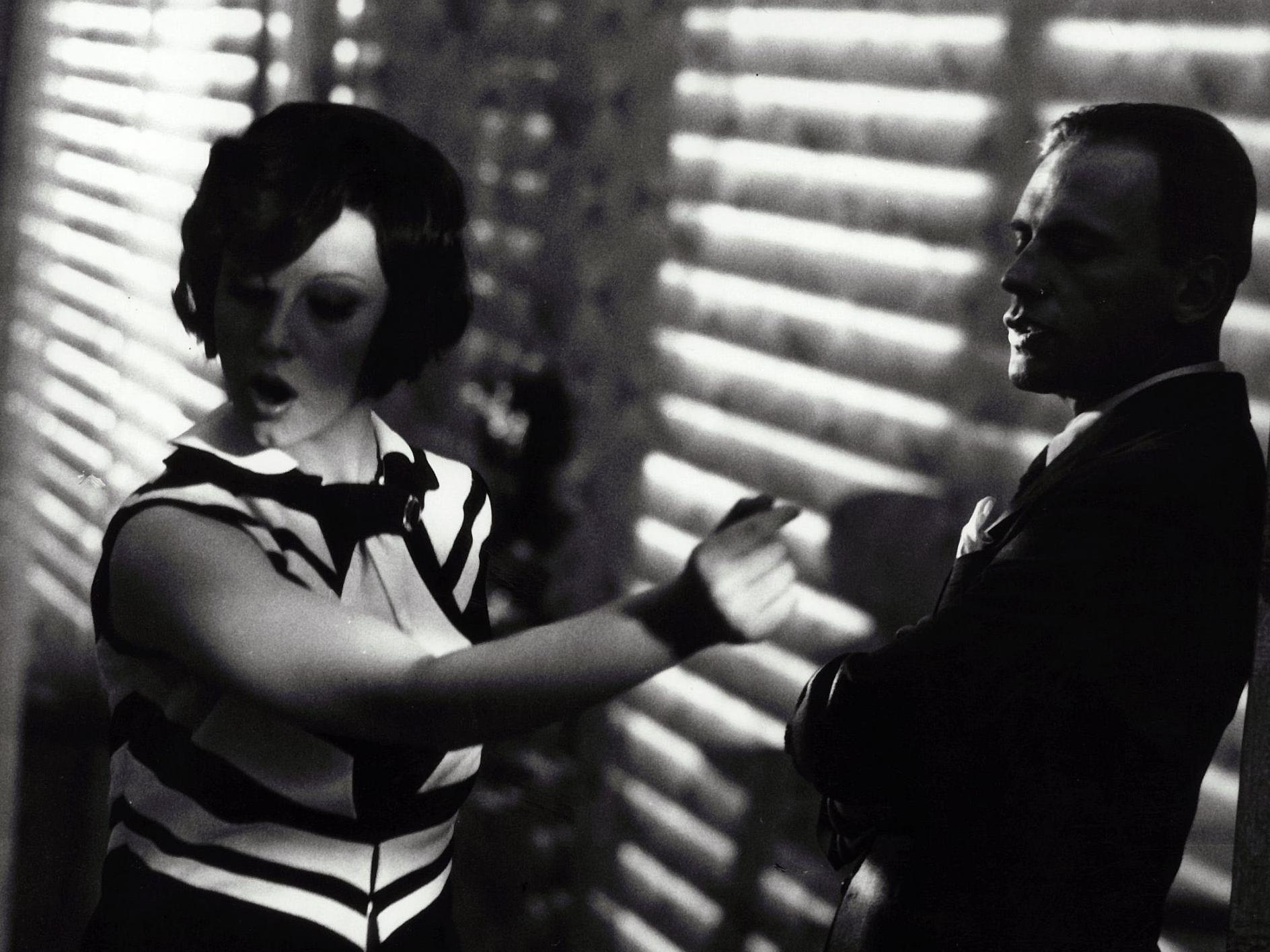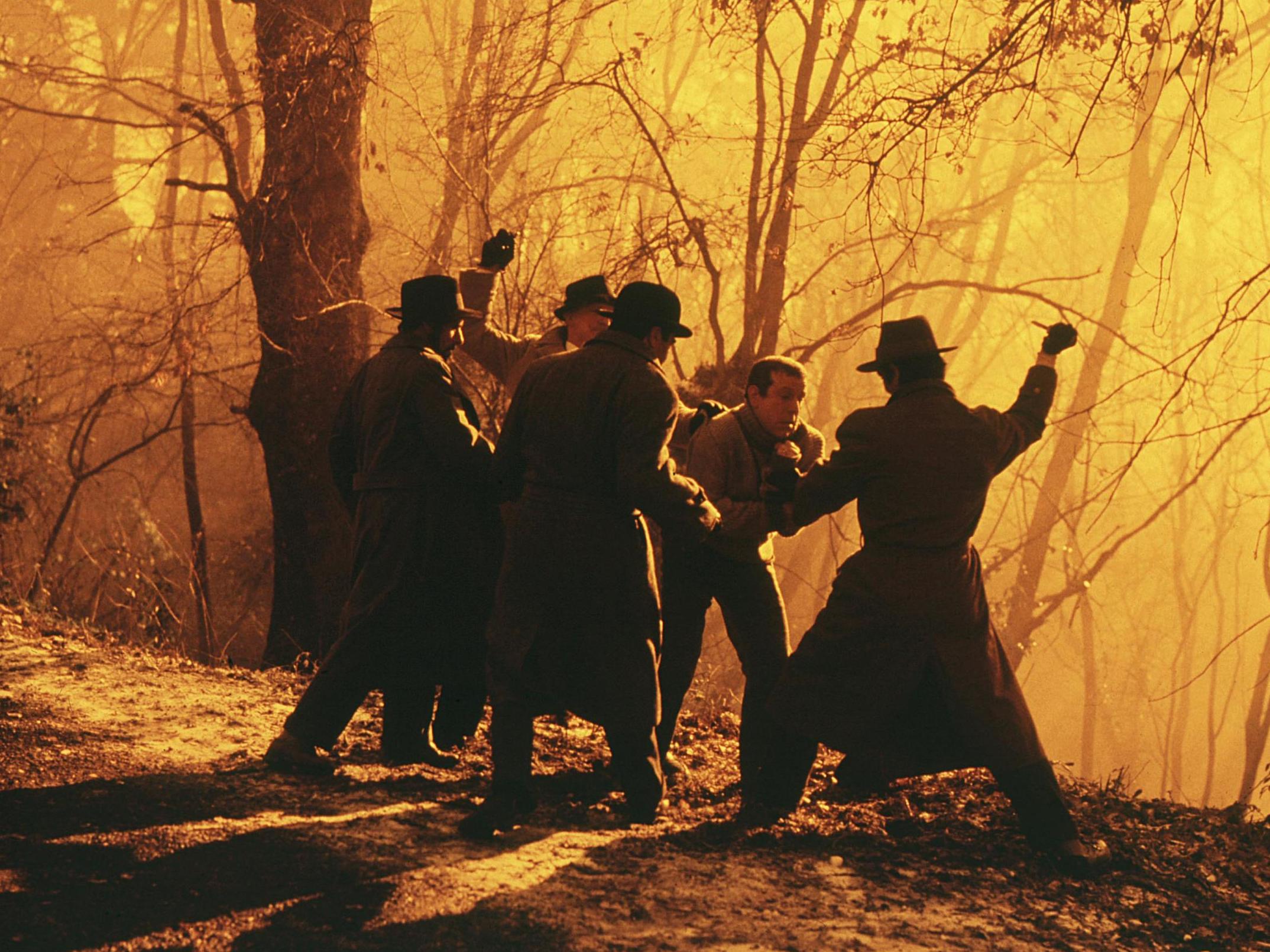Bernardo Bertolucci death: How the late director's The Conformist inspired The Godfather and The Sopranos
The Italian filmmaker's supremely stylish Fascist-era drama was an influence on Francis Ford Coppola
Your support helps us to tell the story
From reproductive rights to climate change to Big Tech, The Independent is on the ground when the story is developing. Whether it's investigating the financials of Elon Musk's pro-Trump PAC or producing our latest documentary, 'The A Word', which shines a light on the American women fighting for reproductive rights, we know how important it is to parse out the facts from the messaging.
At such a critical moment in US history, we need reporters on the ground. Your donation allows us to keep sending journalists to speak to both sides of the story.
The Independent is trusted by Americans across the entire political spectrum. And unlike many other quality news outlets, we choose not to lock Americans out of our reporting and analysis with paywalls. We believe quality journalism should be available to everyone, paid for by those who can afford it.
Your support makes all the difference.Bernardo Bertolucci, the great Italian filmmaker, has passed away in Rome, aged 77.
Perhaps best known for the notorious Last Tango in Paris (1972), The Last Emperor (1981) and The Dreamers (2003), Bertolucci had a far greater influence on American cinema than many will realise.
His 1970 film The Conformist, an early masterpiece, was a huge inspiration to Francis Ford Coppola when making The Godfather in 1972 and its sequel in 1974.
Adapted from Alberto Moravia’s 1951 novel of the same name, Bertolucci’s film centres on the life of Marcello Clerici (Jean-Louis Trintingnant), a hitman working for the Organisation for Vigilance and Repression of Anti-Fascism during the reign of Benito Mussolini.
Assigned by the secret police with executing the outspoken Professor Luca Quadri (Enzo Tarascio) in Paris – once Clerici’s own teacher – the killer finds his faith in the cause he has committed himself to profoundly shaken and is torn between his repressed homosexual inclinations and desire for the academic's wife, Anna (Dominique Sanda).
Like Michael Corleone (Al Pacino) in Coppola’s adaptation of Mario Puzo's novel, Marcello longs for a normal life but is unable to save himself from being consumed by the nightmare world of corruption and violence he has been born into.
Trintingnant plays the reluctant party man from behind a mask of blankness, the collar of his trench coat worn high around the neck as he peers out from beneath the brim of his fedora with a rueful gaze.
The uniform allows him to hide in plain sight, in denial of his inner turmoil about what he has allowed himself to become and what he might really want.
Impressed by the film, Coppola borrowed ideas for specific scenes, notably the exuberant mood of a dance hall episode in The Conformist in which the revellers join hands in a circle, which clearly inspired the wedding celebrations that open The Godfather.

He also admired the chilly style of Bertolucci’s director of photography, Vittorio Storaro, and asked his own cinematographer, Gordon Willis – affectionately known as “the Prince of Darkness” for his bold use of shadow – to recreate the haunted atmosphere Storaro had conjured.
The interior of the office of Vito Corleone (Marlon Brando), the sunlight breaking in between the slats of his Venetian blinds, owes something to Storaro’s expressionistic use of contrast.
His influence is also felt in the sudden bursts of warmer, more nostalgic tones in the flashback sequences of the younger Vito (Robert De Niro) on the streets of New York in The Godfather Part II.
Coppola would later hire Storaro himself to shoot Apocalypse Now (1979) while the same spirit of cross-pollination would see Brando go to work on Last Tango in Paris, and De Niro play the lead in Bertloucci’s epic 1900 (1976).

The character of Marcello Clerici has meanwhile been cited as an influence on other conflicted New Hollywood protagonists, from Coppola’s own Harry Caul (Gene Hackman) in The Conversation (1974) to Martin Scorsese’s disturbed Vietnam vet Travis Bickle (De Niro) in Taxi Driver (1976).
The Conformist‘s most unforgettable scene – the murder of the professor in a snowy woodland and the subsequent pursuit of the fleeing Anna – would inspire an even more direct homage in another Italian-American mobster drama.
The “Barren Pines” episode of HBO’s The Sopranos, directed by Steve Buscemi in 2001, would directly reference the scene as Christopher (Michael Imperioli) and Paulie (Tony Sirico) find themselves chasing Russian gangster Valery (Vitali Baganov) through the trees after botching his execution.

Join our commenting forum
Join thought-provoking conversations, follow other Independent readers and see their replies
Comments